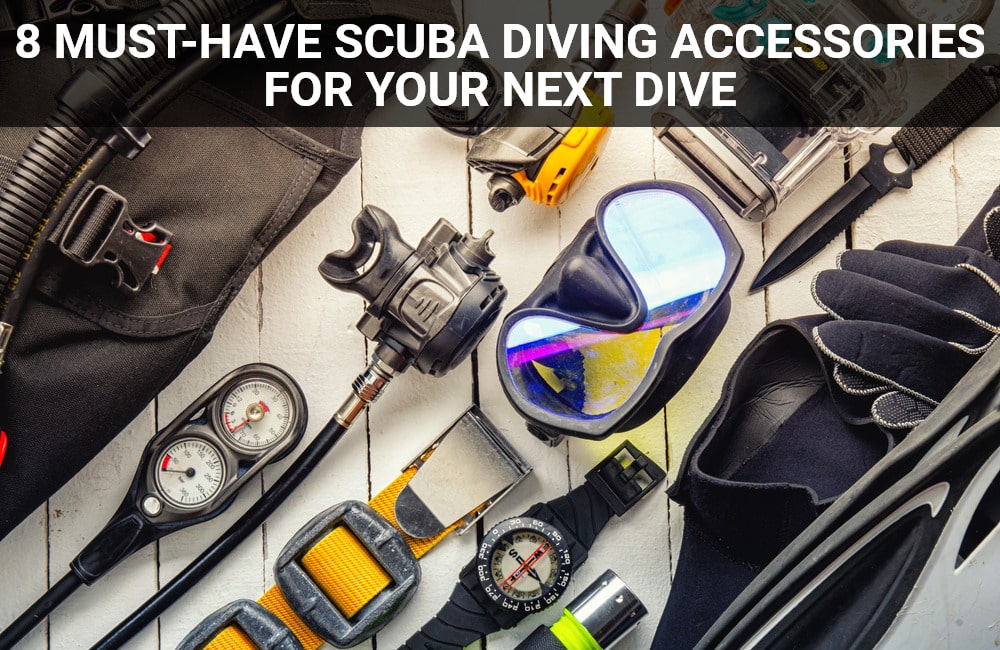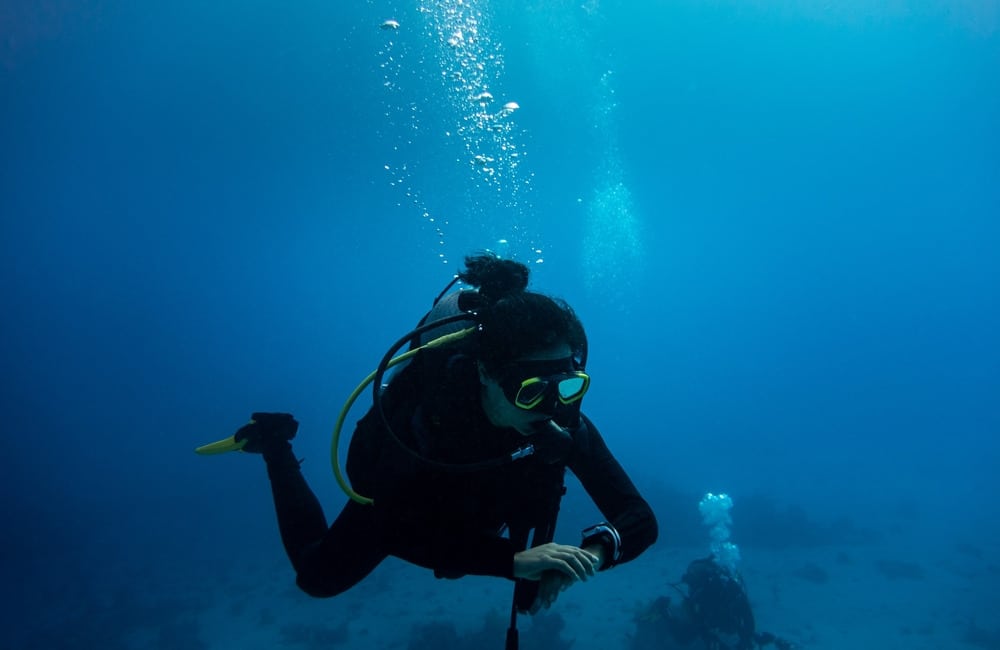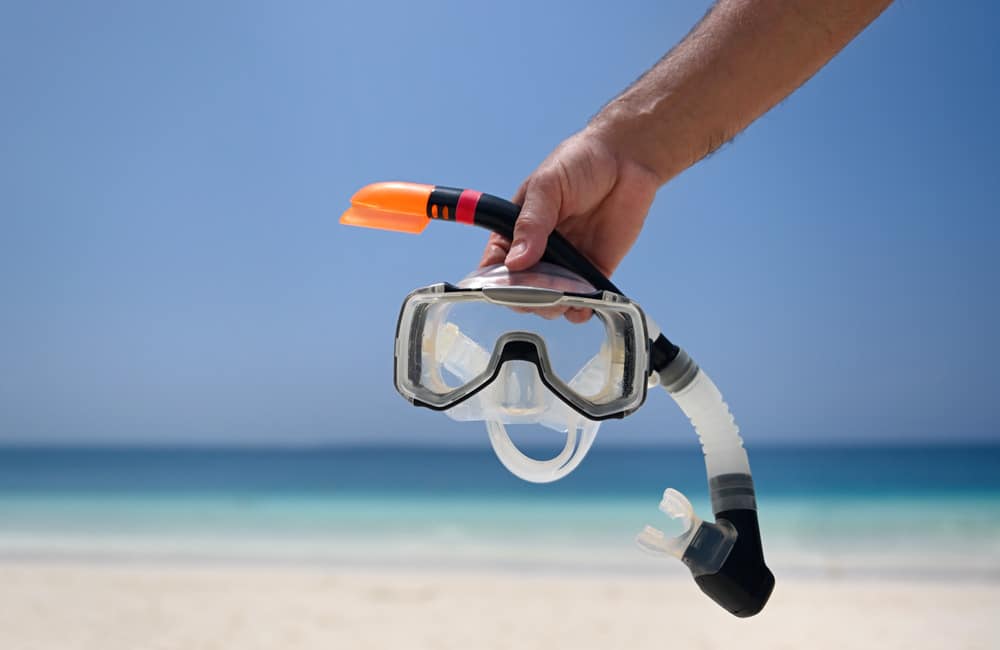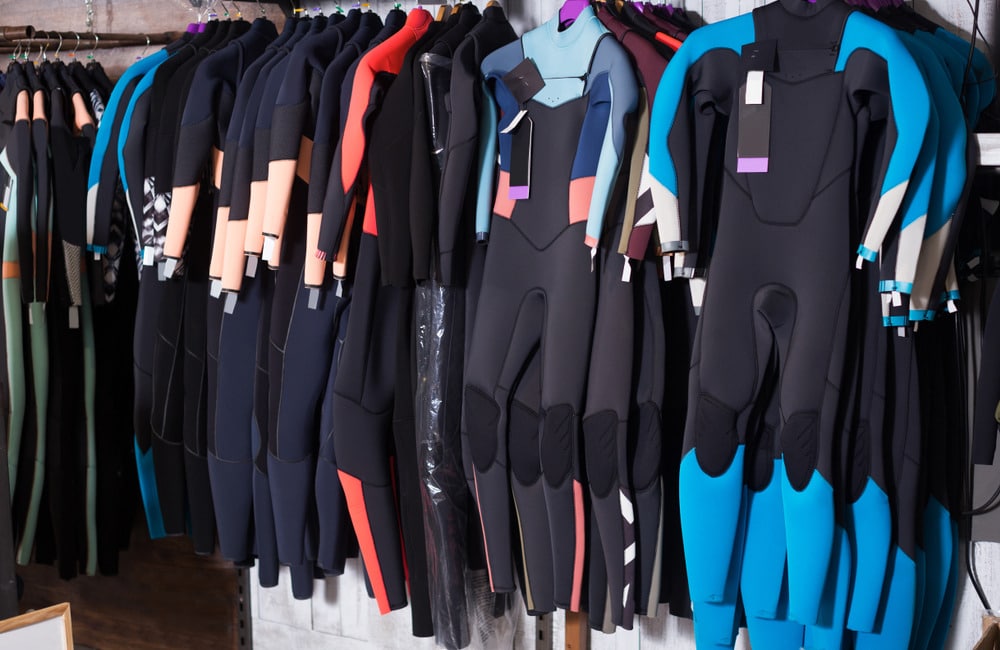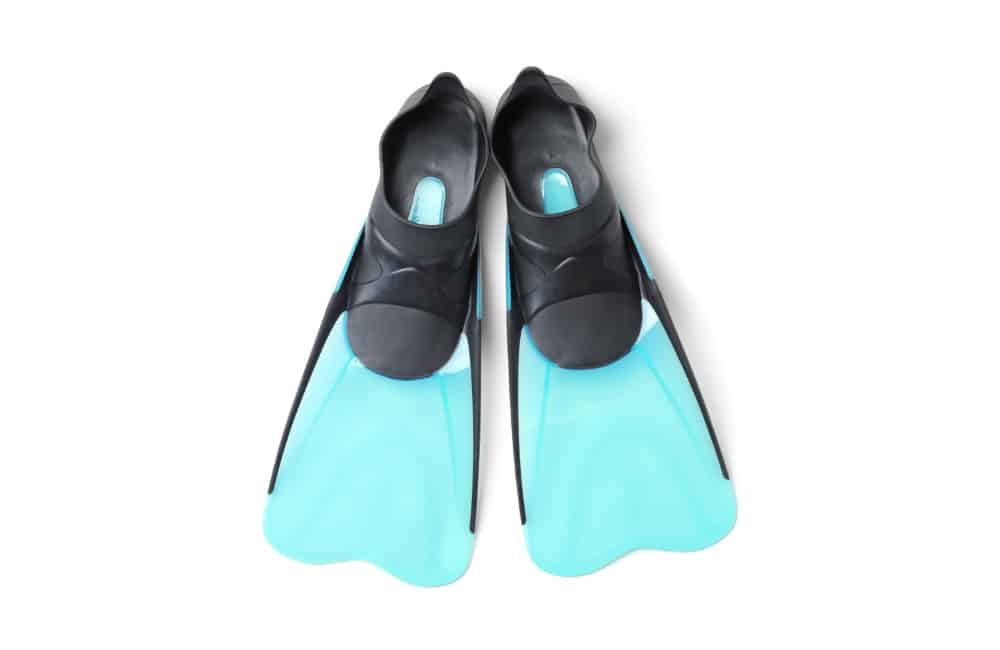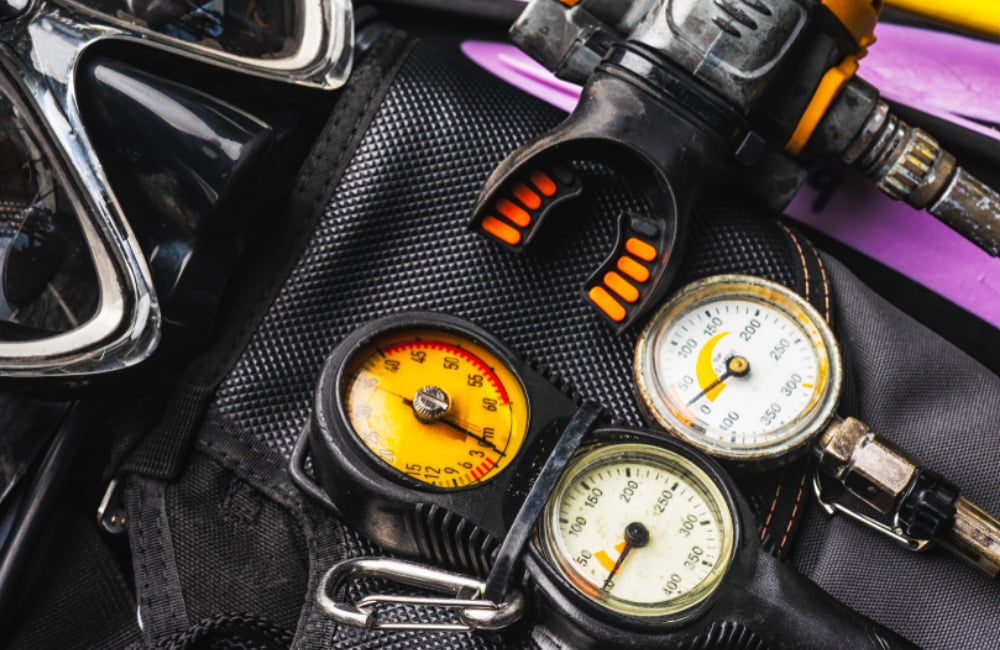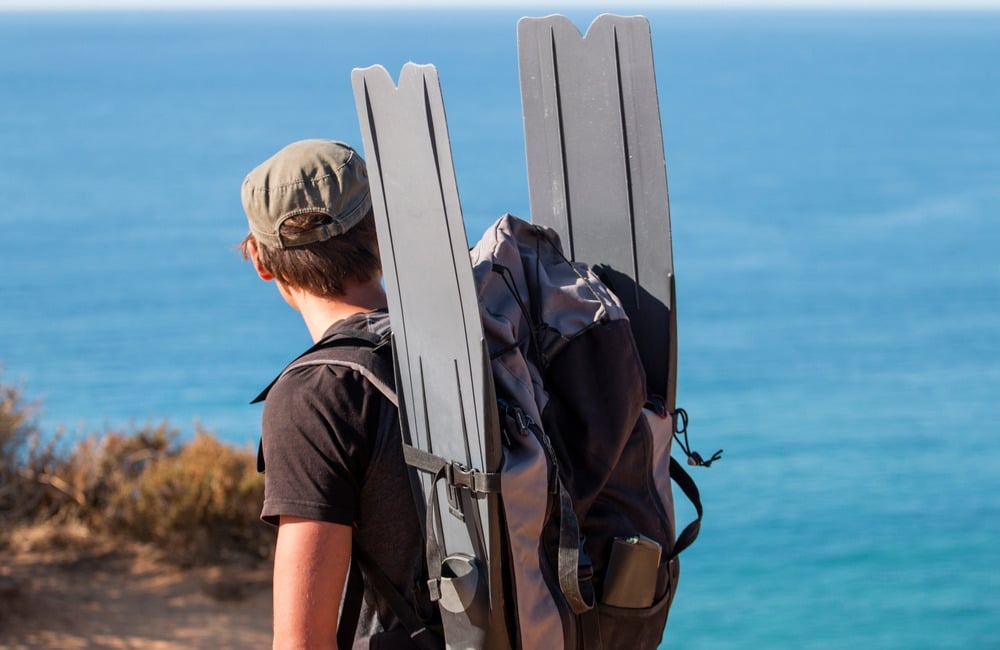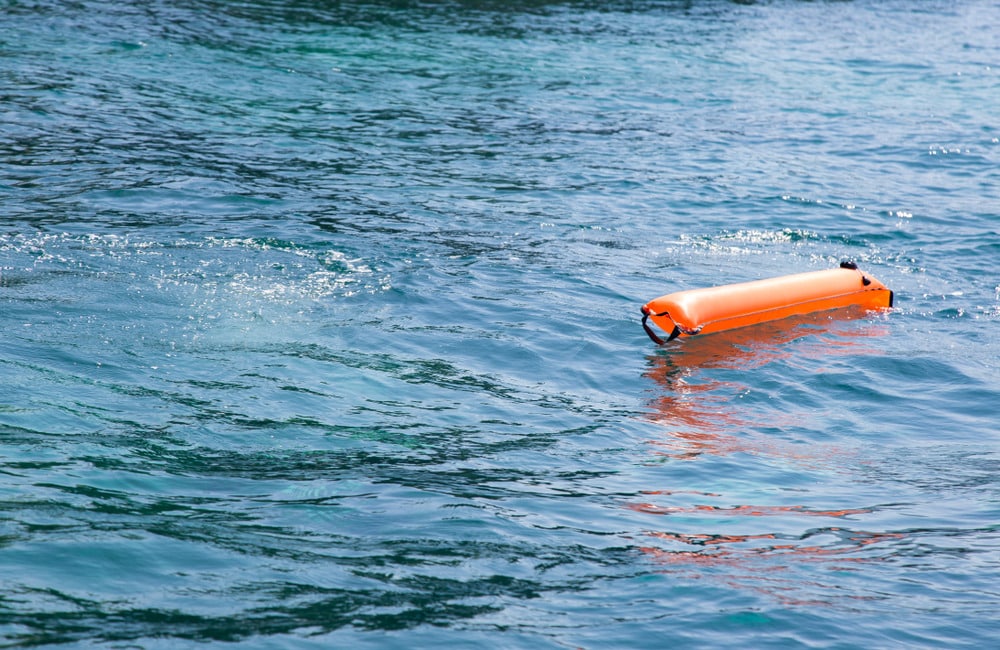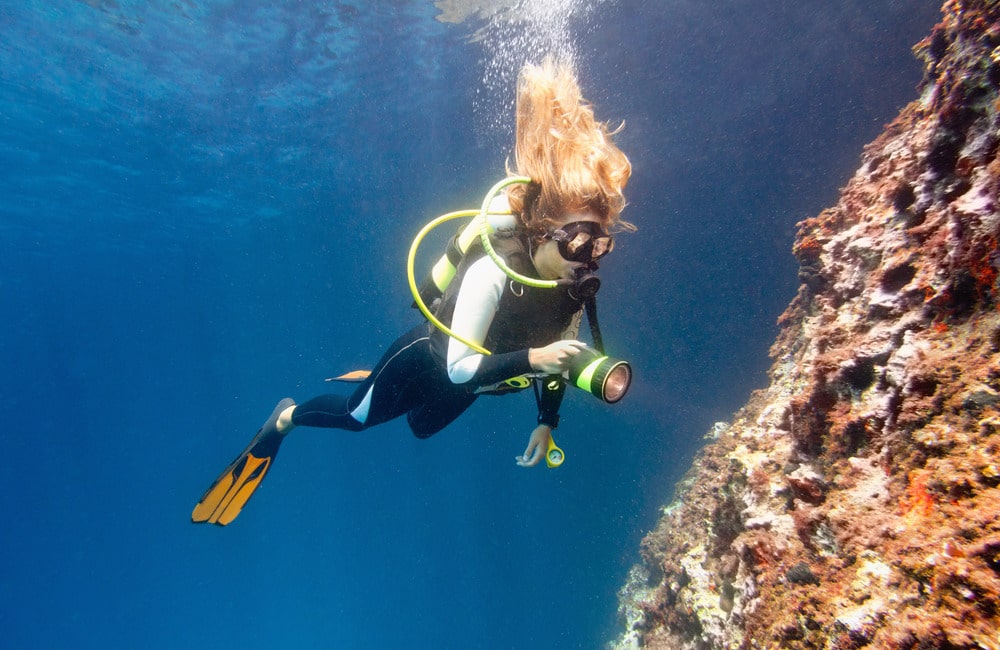Blog
8 Must-Have Scuba Diving Accessories for Your Next Dive
If you’re a scuba diver, there are certain accessories that you simply can’t go without on your next dive. From temperature-appropriate wetsuits to protective masks and fins, having the appropriate diving supplies is key to making sure your time in the ocean is safe, comfortable, and enjoyable—and could even save your life if an emergency arises.
Whether you’re a seasoned professional or just getting into the sport of scuba diving, here’s our must-have list of 8 essentials for every ocean adventure.
Dive Computer
As a professional diver, having a dive computer is essential to ensure a safe and enjoyable diving experience. One of the key benefits of using a dive computer is the ability to accurately monitor the amount of time spent underwater and at what depth.
By tracking this information, divers can avoid decompression sickness and other potentially dangerous health issues. Additionally, dive computers can also provide real-time measurements of temperature, water pressure, and air supply, helping divers to manage their breathing and conserve energy.
By taking advantage of these advanced features, divers can focus on exploring colorful marine life and vibrant coral reefs without having to worry about risking their safety.
Factors to Consider When Choosing a Dive Computer
When it comes to choosing a dive computer, there are many factors to consider. First and foremost, you need to choose a device that is suitable for your level of diving experience. Some models are great for beginners, while others offer more advanced features for experienced divers.
You also need to think about the type of diving you will be doing – different types of diving require different types of dive computers. For example, if you plan on doing a lot of deep diving, you’ll need a model that can handle the depths you’ll be reaching.
Other factors to consider include the size of the computer (you don’t want it to be too bulky), the battery life, and the price. By taking these factors into account, you can choose a dive computer that will serve you well on all of your underwater adventures.
Dive Mask
As a professional diver, the importance of a good quality dive mask cannot be overstated. A dive mask is not only responsible for providing adequate vision underwater, but it also plays a crucial role in ensuring the safety of the wearer.
A poorly fitting mask can cause discomfort and distract the diver from the task at hand, leading to a potentially hazardous situation. In addition, a low-quality mask may not be able to withstand the harsh conditions of the underwater environment or provide proper protection against water pressure.
With a good quality dive mask, divers can enjoy optimal visibility, comfort, and safety, allowing them to fully immerse themselves in the beauty and wonder of the underwater world.
Features to Look for in a Dive Mask
There are several features that you should look for when selecting one.
-
- Firstly, it is important to choose a mask that fits snugly on your face but is also comfortable to wear.
-
- Additionally, a mask with a wide field of vision is ideal as it will allow you to take in more of your surroundings underwater. Anti-fogging technology is also important, as it will help keep your mask clear throughout your dive.
-
- Finally, consider the materials the mask is made of, as it can impact durability and comfort.
By prioritizing these key features, you can find a dive mask that will enhance your diving experience.
Wetsuit or Drysuit
One of the most important decisions you will make is between a wetsuit and a drysuit. A wetsuit is made of neoprene, a material that traps a thin layer of water between your skin and the suit. Your body then heats up the water, creating a layer of insulation that keeps you warm while diving.
On the other hand, a drysuit is designed to completely isolate you from the water. It is made of a waterproof material that keeps you dry while diving. The choice between the two depends on personal preference, location, depth, and temperature of the water. As always, it is important to weigh the pros and cons of each before deciding which accessory to invest in.
Factors to Consider When Choosing a Wetsuit or a Drysuit
There are several factors to consider, such as the water temperature, dive duration, buoyancy needs, and personal preferences. A wetsuit keeps you warm by trapping a layer of water between your skin and the suit, which is then warmed by your body heat.
A dry suit, on the other hand, keeps you completely dry by sealing out water from the inside. While a dry suit is typically preferred for colder waters, a wetsuit may be more comfortable and maneuverable in warmer conditions.
Ultimately, the decision comes down to your specific needs and preferences, so it’s important to do your research and try on different options before making a purchase.
Fins 
Scuba diving enthusiasts will agree that fins are a crucial accessory for a smooth and comfortable dive. The importance of fins in scuba diving cannot be overstated, as they help you maneuver through the water with ease, conserve energy, and enhance your overall experience.
When choosing fins, you’ll want to consider factors such as their material, blade shape, stiffness, and size, as these will affect your performance, comfort, and safety. Whether you’re a novice diver or a seasoned pro, investing in the right pair of fins will make a world of difference in your underwater adventures.
Regulator 
The regulator acts as a lifeline between the diver and their air tank, ensuring that they always have a continuous supply of air. This means greater safety and peace of mind for the diver, who can focus on enjoying their surroundings rather than worrying about running out of air.
In addition, regulators can be customized to fit the individual’s needs and preferences – some are designed to reduce breathing resistance, while others are engineered to provide a more consistent airflow. Investing in a quality regulator is not only a wise safety decision, but it can also make for a more enjoyable and comfortable dive.
Factors to Consider When Choosing a Regulator
Selecting the right regulator for your needs requires careful consideration of a few key factors.
-
- Firstly, you should consider the type of diving you’ll be doing and whether you require a regulator that can handle deeper dives or harsher conditions.
-
- Secondly, you should take a look at the regulator’s comfort and fit, ensuring that it feels secure and doesn’t cause any jaw fatigue or discomfort.
-
- Additionally, you should evaluate the ease of maintenance and repair, as these factors can drastically impact the longevity of the regulator.
By taking the time to consider these and other critical factors, you’re sure to select a regulator that will keep you safe and comfortable in the underwater world.
Dive Bag
A good quality dive bag can make all the difference in ensuring a safe and organized diving experience. Not only will it protect your gear from damage while in transit or storage, but it will also make it easier to transport your gear to and from the dive site.
A well-designed dive bag will have plenty of compartments and pockets to store your fins, mask, snorkel, regulator, wetsuit, and any other equipment you need for your dive. Investing in a high-quality dive bag is a must for any serious diver, and it will help you enjoy your dives even more, knowing that your gear is safe and protected.
Features to Look for in a Dive Bag
When it comes to choosing a dive bag for scuba diving, there are several features that can enhance your experience underwater.
-
- Firstly, the material of the bag should be durable and waterproof to protect your gear from getting damaged.
-
- Additionally, adjustable straps and padded handles make it easier to carry your equipment comfortably. Look for a bag with multiple compartments and pockets for organized packing, and consider the size of the bag based on your personal needs and the amount of equipment you intend to bring.
-
- Lastly, a bag with wheels can make transportation over long distances much easier.
Keeping these features in mind can help you find the perfect dive bag for your next underwater adventure.
Surface Marker Buoy
As a scuba diver, safety is of utmost importance. One essential accessory that should not be overlooked is the Surface Marker Buoy (SMB). An SMB serves as a vital communication tool between the diver and the surface support team. It alerts boats in the area of the diver’s presence, reducing the risk of accidental collision.
Moreover, it also helps to mark the diver’s location and guide the dive boat back to the correct site. When choosing an SMB, factors such as size, color, and deployment mechanism should be considered depending on the diving environment.
It is important to ensure that the SMB is easily visible, durable, and easy to deploy in case of an emergency. Investing in a reliable SMB is a smart decision that can make all the difference in ensuring a safe and successful dive.
Dive Torch
Scuba diving comes with its own set of dangers, especially when it comes to low visibility underwater. That’s why a dive torch is a must-have accessory for any scuba diver. It not only enhances visibility but also enables the diver to explore more safely and effectively.
When choosing a dive torch, it’s important to look for certain features such as waterproofness, brightness, and durability. Additionally, it’s advisable to have a backup light in case the primary one malfunctions. So, for an adventurous and stress-free diving experience, make sure you have a reliable dive torch by your side.
Conclusion
In conclusion, a well-equipped scuba diver is a happy and safe diver. We’ve discussed the must-have scuba diving accessories and important features to consider when selecting gear and give our final thoughts on how equipment can make or break your underwater experience. Being prepared with the right equipment will help ensure you have a successful and enjoyable dive.
Always be sure to inspect your gear regularly for any signs of wear and tear or damage, and consider replacing components as needed. So, if you’re ready to become a certified diver, now is the perfect time to start planning for all those underwater adventures ahead!
